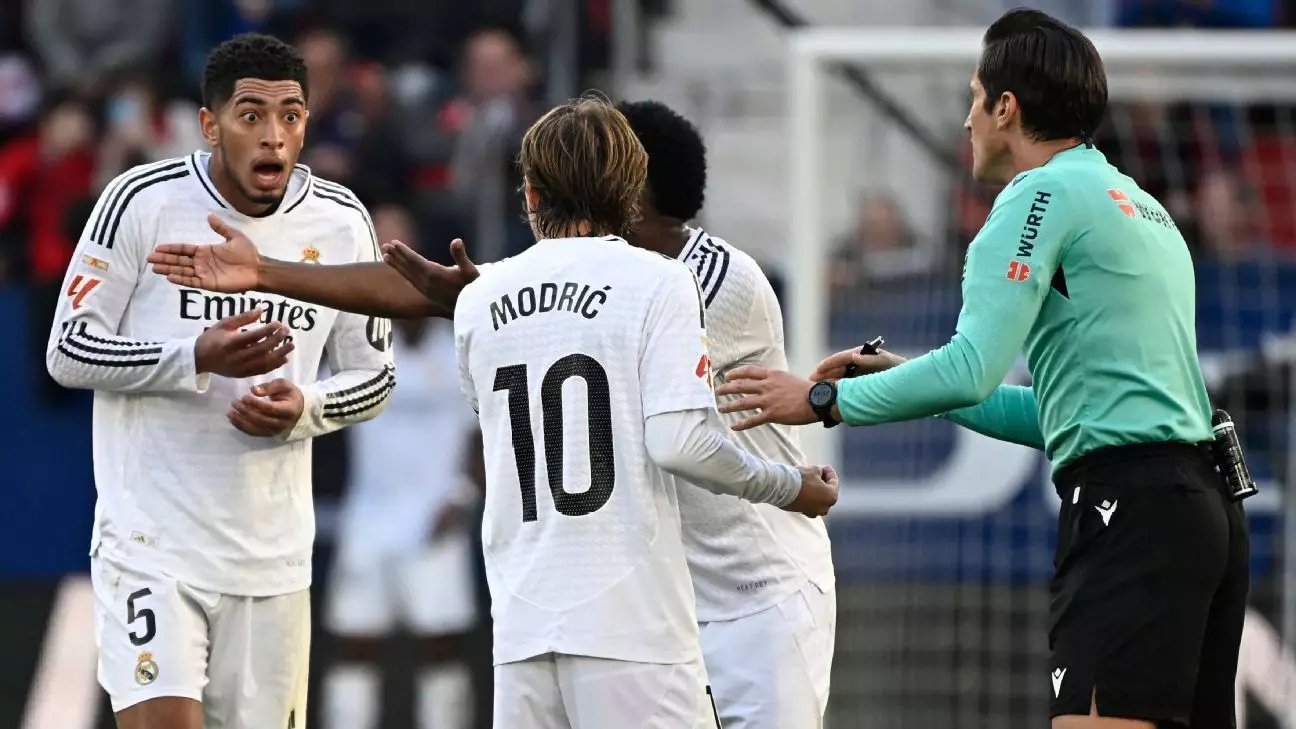In the realm of football, emotions can run high, and referees are often at the center of heated exchanges. Such was the case during Real Madrid’s match against Osasuna when midfielder Jude Bellingham received a red card from referee José Luis Munuera. The dismissal, which occurred just before the halftime break, has sparked debate about the incident, particularly regarding the communication breakdown between player and official. Bellingham’s account of events following the game sheds light on the complexities surrounding such controversial decisions.
The Sequence of Events
The incident unfolded in the 40th minute when the young English midfielder expressed his frustration over a refereeing decision that he believed warranted further consideration. His complaints, however, were interpreted by Munuera as grounds for a red card. This action came on the heels of Real Madrid’s coach, Carlo Ancelotti, already receiving a yellow card for arguing a perceived handball by an Osasuna player. Up until that moment, Real Madrid was in the lead thanks to a goal from star player Kylian Mbappé, which added another layer of intensity to the match.
After the match, Bellingham was quick to address what he called a “miscommunication” between himself and the referee. He expressed his disappointment, stating, “It’s clear that he made a mistake, there was a miscommunication.” His sentiments were aimed at exploring the fact that the events recorded in the official report did not match the reality captured on video. He suggested that his comments were misinterpreted, highlighting the challenges of verbal exchanges in high-pressure situations. The midfielder emphasized his commitment to the team, asserting that he never intended to jeopardize his side’s performance by getting sent off.
Coach Ancelotti’s Support
Ancelotti chimed in with his observations about the incident, reinforcing Bellingham’s claim of a misunderstanding. The coach suggested that the language barrier may have contributed to the confusion, indicating that the phrase Bellingham reportedly used was not as offensive as perceived. Ancelotti pointed out this distinction as significant; he believed it underscored that the referee may have acted hastily out of frustration rather than malice. His call for a dialogue with the officiating team instead of with Bellingham demonstrates his protective stance towards his player.
This incident extends beyond a mere case of a red card; it raises questions about how communication between players and referees can improve to minimize misunderstandings. Bellingham’s insistence that evidence—including video footage—should be reviewed illustrates a greater desire for transparency in officiating. The fallout from this event invites discussion about the need for better training and resources for referees to handle situations involving language differences effectively.
Football is a sport laden with passion, and moments of miscommunication can lead to turning points in crucial matches. Bellingham’s red card, his reflections on the incident, and Ancelotti’s perspective highlight the intricate dance between authority and accountability in sports. Perhaps this occurrence can serve as a catalyst for future changes in how emotional exchanges on the pitch are managed, ensuring that the integrity of the game remains intact while acknowledging the often volatile atmosphere present on the field.

